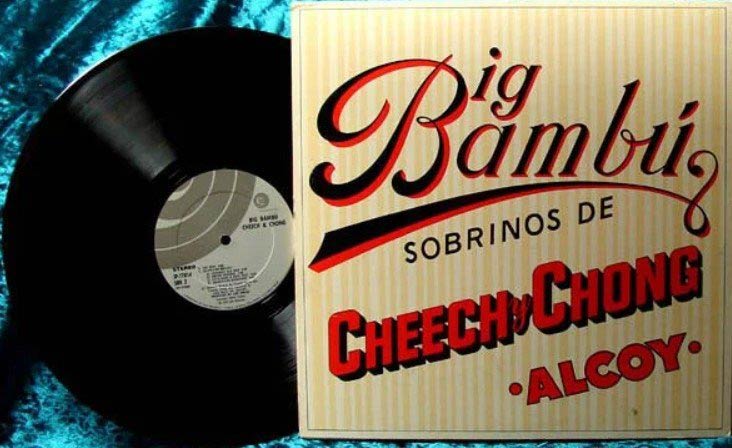Art By Rebekah Jenks
As the industry learns of the bad corporate behavior coming from prominent suppliers of rolling papers (and other smoking accessories) one might wonder: “I know the product I have is safe, I have a lab report for that, but what about the paper I’m about to roll it up with?”
Hello, we’re Shannon and Austin. We’re cannabis consumers and operations managers at the dispensary known as Monkey Island Dispensary. Located on Monkey Island, in Northeast Oklahoma.
As we mentioned before, our wondering began after hearing about the legal proceedings with one superstar in the rolling-paper business. One we were even considering carrying to our patients, since it’s a brand we have been personally using for years. Some have already been asking these questions, from growers to testing labs, to even TikTokers. You know, people. People who have a relationship with cannabis that is central to their daily lives. In general, people need the brands they use to deliver their medicine to be trustworthy to consume at minimum.
That Hemp is Bananas
Travis Cesarone posted on LinkedIn some of the most popular brands of hemp rolling papers are coming from the Philippines and Indonesia, where hemp is “entirely illegal.”
“So, how the heck are pre-rolls imported from the Philippines or Indonesia ‘made from hemp’?” posts Travis. Further pointing out that hemp is an “ambiguous term.” In those regions of the world there is a species of banana, Abacá, that is used to make paper. This paper is called “Manila Hemp.”
Why the Philippines?
Of course, the average westerner has no knowledge of Abacá and a quick google search will bring up a Wikipedia page. Cultivation practices cite using volcanic soil to grow Manila Hemp. Volcanic soil is fertile, no doubt. According to NIH studies, it’s also rich, among other metals, in arsenic, mercury, lead, and cadmium. This same study also notes that these metals in the soil can enter the human body via ingestion, inhalation, and dermal contact.
This irresponsible behavior is typical of profiteers in the cannabis industry. The opacity signals a stance of profit-first. Nothing new here we say, that just means somebody is out there doing it the right way. . . Right?
Heavy Metal in 2020
As we dig deeper into the matter, interesting statistics get dropped into the mix. In 2020, SC labs conducted a study of 101 rolling papers finding that there is at least one heavy metal found in 90% of those tested. Also, 8% of the 101 were found at minimum to contain one heavy metal in concentrations above the allowable limits.
If you visit their website now, you find an entire pitch of testing protocols for rolling papers. It makes sense to us! If you’re planning on smoking it, you should be testing it. After all, heavy metals are cumulative in our bodies.
 Growing is Difficult Enough
Growing is Difficult Enough
As we launch Monkey Island Dispensary, in Oklahoma, we are reminded of the care of the grower often. This study was conducted at a time when the pre-roll market was just beginning to boom across the country. Growers probably saw this problem first when trying to convert their buds into new test batches as pre-rolls. We can see it now…beautiful bud grown meticulously, full of love and care, and most important of all, earning a clean CoA.
Full steam ahead!
Grind it up, pack into ACME cones, then off to the lab, only to return with. . .heavy metals?!?
At least that’s our guess, considering the basic procedure in our industry. One could imagine heads were scratched, both by the grower and their 3rd party lab! One TikToker, in response to recent legal proceedings with aforementioned prominent cone producer, admits that in his own state he couldn’t use that specific company’s product due to there being “all kinds of heavy metals” present in their final product.
So, What Does All This Mean?
It means, that just like always, the consumer is at-risk of being duped – by flashy marketing, less-than-honest product feature claims, and potent branding. As two people who refuse to harm the patients that are about to walk through our dispensary doors, our loved ones, and our personal health; We cannot unlearn the fact that some companies simply don’t care about the consumer.
This will require vigilance on our part as a community in the form of time, care, and money. For the sake of the plant, the patients who rely on it, and our health, we are now intent on finding the cleanest and most ethically produced rolling papers out there. Manila hemp is not the way.
Don’t know where to turn to now? We got you! Check out these timely alternatives we’ve decided to investigate, below.
For Those About To Be Tested, We Salute You!
1. OCB Brown Rice
OCB is coming in strong with claims of being made with water from The French Alps and rice fibers sourced from France’s Camargue River Delta. OCB was established in 1822 by the Odet River, at the Casadec Mill, by the Bolloré family. O-C-B. Acacia-gummed and ultra-thin for superior rolling and slow burn.
2. Rizla Medium Thin Green
Rizla is another French-made rice rolling paper. In the UK market, it’s popular due to the paper’s ability to handle higher moisture content. Can you say, “infused joint?”
3. Bambú Rolling Papers
Bambú is probably the most interesting addition to this list. Established in 1764 in Spain producing Bible paper, Bambú is worth mentioning, especially since Cheech and Chong made an album cover even mimicking their branding.
Bambú claims their success can be attributed to using natural inputs in their final product.
We will see!
What’s the Solution?
Don’t start tearing pages out of your bibles just yet. There are other delivery methods. Glass pipes, cob pipes, hardwood pipes, bongs, etc. All of these are less harmful than cones made from Manila Hemp.
Stay tuned for the testing results on those papers though!


